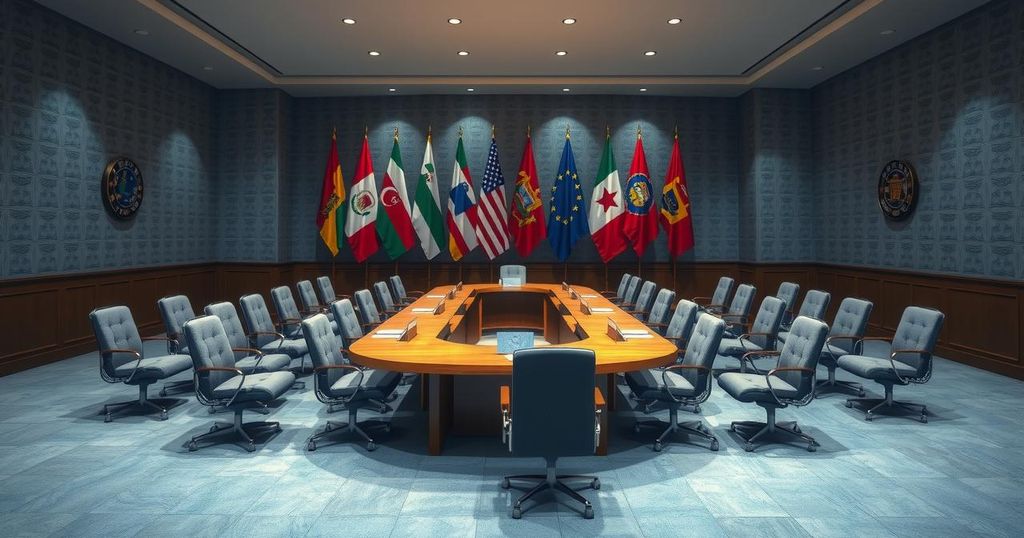World news
AFRICA, ANGOLA, BE, BEHALAL, CIVIL WAR, CONFLICT RESOLUTION, CONGO, CONGO (KINSHASA), CONGO RIVER ALLIANCE, DEMOCRATIC REPUBLIC OF CONGO, EUROPEAN UNION, GLOBAL INITIATIVE AGAINST TRANSNATIONAL ORGANIZED CRIME, HUMANITARIAN, KINSHASA, LUANDA, MILITARY COUP, NORTH AMERICA, REUTERS, TS, TSHISEKEDI, UNITED STATES, WAR, WEST AFRICA, ZOBEL BEHALAL
Amira Khan
0 Comments
M23 Rebels Withdraw from Peace Talks with Congo Amid EU Sanctions
The M23 rebels have withdrawn from peace talks with the Democratic Republic of Congo following EU sanctions targeting them and Rwandan officials. This decision complicates efforts for dialogue amidst a long-standing conflict rooted in historical tensions and resource competition. Despite the M23’s exit, the Congolese government plans to attend the scheduled discussions in Angola.
Recent developments have underscored the fragile situation in eastern Democratic Republic of Congo, as the Rwanda-backed M23 rebels have withdrawn from scheduled peace talks with the Congolese government. This decision came shortly before the parties were set to meet in Angola, following newly imposed sanctions by the European Union that specifically targeted M23 and certain Rwandan officials.
The M23 alliance announced its retreat from the negotiations, labeling the EU sanctions as a deliberate attempt to impede anticipated discussions. Historically, the M23 has called for direct dialogue with the Congolese government, which President Felix Tshisekedi had resisted, viewing the group as a mere proxy for Rwanda. However, a shift in strategy occurred when Tshisekedi, faced with recent military setbacks, agreed to send a delegation to the peace talks in Luanda.
Tina Salama, spokesperson for President Tshisekedi, confirmed that the government delegation would still proceed to Luanda despite the M23’s withdrawal. The ongoing conflict has deep roots, tracing back to the aftermath of the 1994 Rwandan genocide and the subsequent scramble for the region’s mineral resources, leading to extensive violence and displacement.
The recent EU sanctions are the most significant to date aimed at M23 and Rwanda, focusing on Rwanda’s mining sector, which analysts suggest plays a major role in the conflict. Zobel Behalal, an expert, highlighted that the sanctions reflect the international community’s recognition of the economic motivations behind Rwanda’s involvement in the unrest.
In response to the EU measures, the M23’s Congo River Alliance criticized international actors for their contradictory stance and stated that such sanctions compromise the possibility for successful dialogue. The fallout from these developments extended internationally, as Rwanda severed diplomatic ties with Belgium, which had advocated for sanctions against Kigali, prompting an exchange of diplomatic expulsions.
In summary, the M23 rebels’ withdrawal from peace negotiations with the Congolese government, influenced by newly imposed European Union sanctions, highlights the challenges of achieving resolution in eastern Congo. The complex historical and economic factors fueling the conflict continue to obstruct direct dialogue, as both sides navigate the ramifications of international actions and diplomatic relations. The situation remains precarious as humanitarian concerns grow amid ongoing violence.
Original Source: www.newsbreak.com




Post Comment